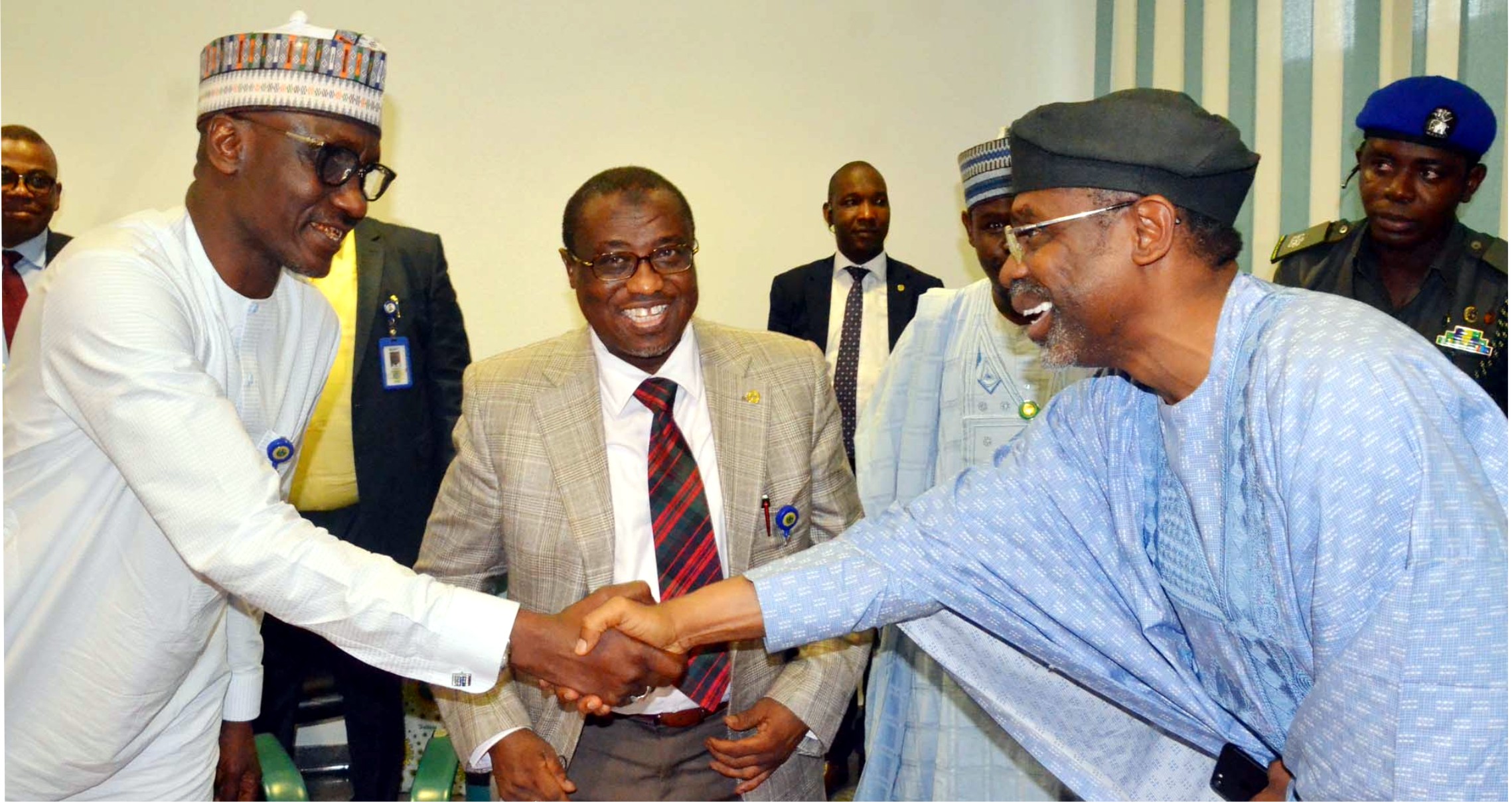Oil & Energy
Varsities Get N368.4m Software For Oil Sector Training

Six universities have received high-tech seismic software worth over $1.2m (N368.4m at the official exchange rate of N307 to one dollar) to help boost the training they give to students and operators in the oil and gas sector.
The Executive Secretary of Nigerian Content Development and Monitoring Board (NCDMB), Simbi Wabote disclosed this at an event organised by the board in partnership with Danvic Nigeria Limited for the training of university lecturers on OpendTect seismic interpretation software.
He said that the use of the software and workstations would significantly improve the skills of stakeholders in Nigeria’s oil sector.
He named the six universities that received the software free of charge to include the Niger Delta University, Bayelsa State; Federal University of Technology, Owerri, Imo State; and Federal University of Technology, Minna, Niger State.
Others are Ahmadu Bello University Zaria, Kaduna State; Federal University of Technology, Akure, Ondo State; and University of Maiduguri, Borno State.
Wabote noted that the geo-science workstations were provided for the institutions by ExxonMobil, South Atlantic Petroleum, Sapetro and Chevron.
He said, “We will continue to partner with Danvic Petroleum and her overseas partner, dGB Earth Sciences, Netherlands. We are indeed pleased that dGB Earth Sciences provided the OpendTect seismic interpretation software free of charge. It is worthwhile emphasising that the cost of this software for the six universities amount to over $1.2m.”
Wabote further disclosed that the NCDMB was sponsoring the training of 18 lecturers from the six universities on the use of the software, as part of support for improving education in the area of geosciences/geology.
The Managing Director, Danvic Petroleum, Mayowa Afe explained that the decision to train the lecturers was because the knowledge of the software would lead to the enhancement of the training of students in geology and geophysics.
The initiative, according to him, would make the students more employable and relevant to the needs of the oil and gas industry after graduation.
Afe stated that at the end of the training programme, Danvic, its partner and the NCDMB would have been able to increase the employment potential of students after graduation, thereby reducing their exposure to violence and criminal activities.
Oil & Energy
Reps C’mitee Moves To Resolve Dangote, NUPENG Dispute

Oil & Energy
Increased Oil and Gas: Stakeholders Urge Expansion Of PINL Scope

Oil & Energy
Digital Technology Key To Nigeria’s Oil, Gas Future

Experts in the oil and gas industry have said that the adoption of digital technologies would tackle inefficiencies and drive sustainable growth in the energy sector.
With the theme of the symposium as ‘Transforming Energy: The Digital Evolution of Oil and Gas’, he gathering drew top industry players, media leaders, traditional rulers, students, and security officials for a wide-ranging dialogue on the future of Nigeria’s most vital industry.
Chairman of the Petroleum Technology Association of Nigeria (PETAN), Wole Ogunsanya, highlighted the role of digital solutions across exploration, drilling, production, and other oil services.
Represented by the Vice Chairman, Obi Uzu, Ogunsanya noted that Nigeria’s oil production had risen to about 1.7 million barrels per day and was expected to reach two million barrels soon.
Ogunsanya emphasised that increased production would strengthen the naira and fund key infrastructure projects, such as railway networks connecting Lagos to northern, eastern, and southern Nigeria, without excessive borrowing.
He stressed the importance of using oil revenue to sustain national development rather than relying heavily on loans, which undermine financial independence.
Comparing Nigeria to Norway, Ogunsanya explained how the Nordic country had prudently saved and invested oil earnings into education, infrastructure, and long-term development, in contrast to the nation’s monthly revenue distribution system.
Chief Executive Officer (CEO) and Executive Secretary of the Major Energies Marketers Association of Nigeria (MEMAN), Clement Using, represented by the Secretary of the Association, Ms Ogechi Nkwoji, highlighted the urgent need for stakeholders and regulators in the sector to embrace digital technologies.
According to him, digital evolution can boost operational efficiency, reduce costs, enhance safety, and align with sustainability goals.
Isong pointed out that the downstream energy sector forms the backbone of Nigeria’s economy saying “When the downstream system functions well, commerce thrives, hospitals operate, and markets stay open. When it fails, chaos and hardship follow immediately,” he said.
He identified challenges such as price volatility, equipment failures, fuel losses, fraud, and environmental risks, linking them to aging infrastructure, poor record-keeping, and skill gaps.
According to Isong, the solution lies in integrated digital tools such as sensors, automation, analytics, and secure transaction systems to monitor refining, storage, distribution, and retail activities.
He highlighted key technologies including IoT forecourt automation for real-time pump activity and sales tracking, remote pricing and reconciliation systems at retail fuel stations, AI-powered pipeline leak detection, terminal automation for depot operations, digital tank gauging, and predictive maintenance.
-

 Sports1 day ago
Sports1 day agoPlateau Wins Kanemi, As Bayelsa, Bendel Played 1-1
-

 Education1 day ago
Education1 day agoVC Congratulates Igwe on Appointment as Pro-Chancellor
-

 Politics1 day ago
Politics1 day agoAlleged Attack On Abure In Benin, LP Calls For Investigation
-

 Sports1 day ago
Sports1 day agoLa Liga: Atletico Bring Real Back To Earth
-

 Maritime1 day ago
Maritime1 day agoCustoms, MAN Consent On 4% FoB Exemptions, Manufacturing Support Measures
-

 Rivers1 day ago
Rivers1 day agoIAUE Emerges Winner Of National Campus Debate, 2025
-

 News1 day ago
News1 day agoFUBARA: UNDERUTILISED SEAPORTS DENYING RIVERS ECONOMIC PROSPERITY ……..Hosts NPA Board, Mgt On Courtesy Visit
-

 Opinion1 day ago
Opinion1 day ago94 Years From A Turning Point

